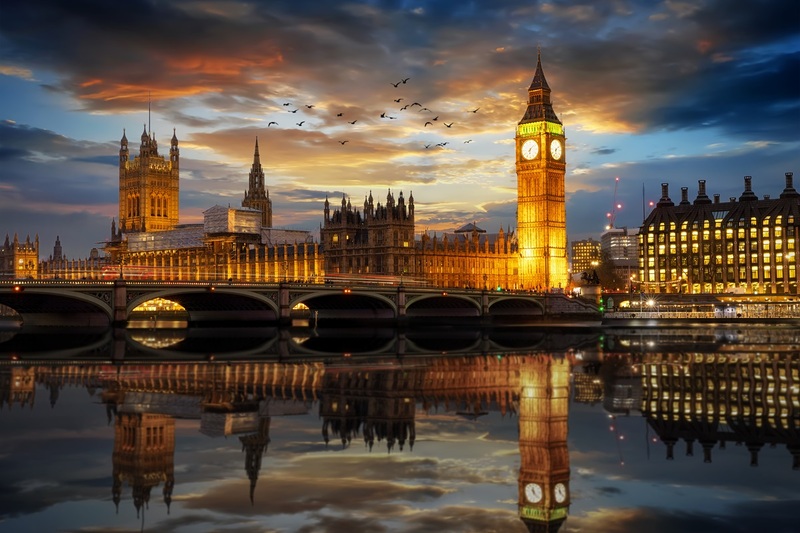LIVE: Business NI expected to rise as Labour prepares for first Budget in 14 years
Keep an eye on this page throughout the day as we guide you through all the latest as Rachel Reeves prepares for Labour’s first budget in 14 years. Reload the page to stay up-to-date with the latest.

Senior Journalist, covering the Credit Strategy and Turnaround, Restructuring & Insolvency News brands.
| LIVE |
Prime Minister’s Questions have just finished, meaning we’re just minutes away from Rachel Reeves taking to her feet for the first Budget of the new Government.
12:22 – Annual appraisal of economic progress needed to understand economic progress – NIESR Director
Ahead of today’s Budget, NIESR director Professor Jagjit Chadha said the Chancellor needs to commit to give a more transparent assessment of our economy to really understand what’s happening in Britain.
He said: “What we need is a long-run commitment to raise public investment over time in such a manner that investment can be appraised and progress assessed but, even more importantly, absorbed by a supply side that looks to be constrained with trend growth at less than half of its post-WW2 average, standing now at a paltry one percent a year.
“What is really missing though is an annual appraisal of our economic progress. We need to commit to more transparent and accountable assessment of our economy by the Chancellor and less galivanting around the world seeking external validation from bodies who do not really understand what is happening in Britain.”
12:15 – Business National Insurance hike could reduce wages
Research from free-market thinktank the Institute for Economic Affairs suggests Labour’s plans to increase National Insurance Contributions for businesses could result in pay cuts, if companies try to keep their staff costs fixed.
💷Employer NIC rise could reduce wages, according to new research
— Institute of Economic Affairs (@iealondon)
Raising employer National Insurance Contributions could result in workers facing pay cuts if companies try to keep their staff costs fixed.
🧵 pic.twitter.com/MQrwAxSfE7💷Employer NIC rise could reduce wages, according to new research
— Institute of Economic Affairs (@iealondon) October 29, 2024
Raising employer National Insurance Contributions could result in workers facing pay cuts if companies try to keep their staff costs fixed.
🧵 pic.twitter.com/MQrwAxSfE7
12:06 – Rise in National Living Wage smaller than each of the last two years – Resolution Foundation
A big part of today’s Budget will undoubtedly be the decision by the government to increase the National Living Wage above the rate of inflation, increasing by 6.7% to £12.21 an hour next April.
However, Nye Cominetti – principal economist at the Resolution Foundation – said the increase is smaller than in each of the last two years, when the minimum wage rose by almost ten percent.
Millions of workers are set to benefit following the announcement that the headline rate of the National Living Wage will rise by 6.7 per cent to £12.21 an hour next April.
— Resolution Foundation (@resfoundation)
Read more 👉 t.co/gXzUv6GUyM pic.twitter.com/3b86DRgdsSMillions of workers are set to benefit following the announcement that the headline rate of the National Living Wage will rise by 6.7 per cent to £12.21 an hour next April.
— Resolution Foundation (@resfoundation) October 30, 2024
Read more 👉 https://t.co/gXzUv6GUyM pic.twitter.com/3b86DRgdsS
11:59 – Action needed now to help those trapped in energy debt
In the last of our opinion pieces building up to the Budget, we heard from the Money Advice Trust’s Matt Hartley – who, among other things, called for the Chancellor to support those who are “trapped in energy debt”.
He said: “What’s needed now is action to help people trapped in energy debt, through a Help to Repay scheme of the kind the Money Advice Trust has proposed, which would offer repayment matching and write-off for those most severely affected.
“Beyond energy, there is more the government can and should do to support struggling households. Our advisers at National Debtline see clearly the impact on people when they are unable to meet their essential costs, like food or energy, due to their Universal Credit payments simply not covering the cost of living.”
11:52 – Budget may be the “most consequential for a decade”, NIESR
Researchers from the National Institute of Economic and Social Research have given their views ahead of today’s budget, with senior economist Ben Caswell describing as the most consequential for a decade.
“This Budget may be the most consequential Budget for a decade. It’s the new government’s first major opportunity to define its economic vision for the UK and put some meat on the bones of some of its key manifesto pledges.
“We’d like to see the Chancellor raise the personal tax-free allowance in order to reduce the tax burden on those in work who currently earn the least and to offset the effect of potential reductions in labour demand arising from the increase in employer NICs.”
Associate economist Monica George Michail added: “The UK is at a critical juncture: after years of sluggish growth and deteriorating public infrastructure, a sustained rise in government investment is vital to promote long-term growth and boost living standards.
“Growing demands for defence and green infrastructure further add urgency for decisive action to secure the UK’s economic future.
“We look forward to the Chancellor’s budget announcement today and hope the new fiscal rules will strike a balance between creating fiscal space and ensuring long-term financial stability.”
11:44 – OBR drawn into a “phoney debate” about fictitious black holes” - Shadow Chancellor
While the OBR’s forecasts won’t be published until later today, the Shadow Chancellor has already raised concerns about what the forecaster may say.
In a piece for The Times published earlier this week, Jeremy Hunt said he was concerned its review into a “fictional black hole”, which will be published it today.
He wrote: “The OBR must be politically impartial because the public and markets need to know that it is holding the government to account without fear or favour.”
In response the Hunt’s concerns, the OBR said it does not disclose advice provided to ministers nor comment on, or refer to, the conduct or decisions of ministers.
Jeremy Hunt: The OBR is being politicised — friends must speak out t.co/z29k7ELM2K
— Times Politics (@timespolitics)Jeremy Hunt: The OBR is being politicised — friends must speak out https://t.co/z29k7ELM2K
— Times Politics (@timespolitics) October 28, 2024
11:37 – We can’t keep putting sticking plasters on the wounds
StepChange’s Richard Lane, also writing for Credit Strategy earlier this month, has called for a number of policies to be put in place ahead of the budget – including a social tariff for those at risk of fuel poverty, and for establishment of a Minimum Income Commission.
He went on to say it’s important we see “the beginning of a plan” to ensure “we don’t end up just putting sticking plasters on the wounds”.
He added: “The long-term objective, that the budget needs to set the tone for, should be to ensure that we never again end up in a situation where so many financially vulnerable households remain in such dire straites for so long.”
11:30 – Careless words cost
One of the more interesting contributions to the swirl of speculation to come out ahead of the Budget has come from one of the UK’s most respected economists – namely the IFS’s Paul Johnson.
Ahead of the Budget, Johnson has raised concerns about the speculation we’ve seen about what may or may not be announced today.
Writing in The Times he said: “uncertainty and speculation are costly in themselves.”
11:21 – The Red Box is out
Rachel Reeves has just posed for the Chancellor’s traditional red box picture outside Number 11 Downing Street
Rachel Reeves poses for chancellor’s traditional red box picture ahead of becoming first woman to deliver a Budget
— BBC Politics (@BBCPolitics)
Follow live t.co/gCmB5DvWDX pic.twitter.com/tMJsoiyUTURachel Reeves poses for chancellor's traditional red box picture ahead of becoming first woman to deliver a Budget
— BBC Politics (@BBCPolitics) October 30, 2024
Follow live https://t.co/gCmB5DvWDX pic.twitter.com/tMJsoiyUTU
11:13 – Treasury Select Committee to scruntise the Budget next week
The Treasury Select Committee has confirmed on social media it will be holding three evidence sessions in order to scruntise today’s Budget. Firstly, next Tuesday (5 November) it’ll hear first from the OBR then from four senior economists to scruntise the OBR’s fiscal forecasts.
The following day, Rachel Reeves will be called before the committee, which will likely see an examination of the Chancellor’s new fiscal rules.
Next week, we will be scrutinising the Budget in three sessions:
— Treasury Committee (@CommonsTreasury)
📈 @OBR_UK on Tuesday 5 November
📊 Economists on Tuesday 5 November
💷 Chancellor @RachelReevesMP @hmtreasury on Wednesday 6 November
🔎 Learn more about the sessions here 👇t.co/ew5C21Sw30 pic.twitter.com/vBKvZXMZaINext week, we will be scrutinising the Budget in three sessions:
— Treasury Committee (@CommonsTreasury) October 30, 2024
📈 @OBR_UK on Tuesday 5 November
📊 Economists on Tuesday 5 November
💷 Chancellor @RachelReevesMP @hmtreasury on Wednesday 6 November
🔎 Learn more about the sessions here 👇https://t.co/ew5C21Sw30 pic.twitter.com/vBKvZXMZaI
11:05 – Chancellor must see health of the wider creditor community as “her ally”
If you’ve been a regular on the Credit Strategy website over the past few weeks, you’ll know we’ve been running a series of opinion pieces building up to the Budget – with our community’s brightest and best giving their views on what they’d like the Chancellor to announce today.
The first of these came from a former shadow cabinet and backbench colleague of Reeves during the Miliband and Corbyn years, namely the current chief executive of the CSA Chris Leslie.
Among other things, the former Shadow Chancellor said Reeves must see “the health of the wider creditor community” as her ally in delivering a growing economy.
10:59 – Throwing billions into a broken system will not deliver results – Conservative leadership frontrunner
Former business secretary Kemi Badenoch has criticised the government’s proposed changes to the debt rules.
The Conservative leadership frontrunner said “technical changes to spending rules, however dressed up, are just more borrowing. Throwing billions into a broken system will not deliver results.”
The move did receive public support from the chief economist of the International Monetary Fund, who suggested he was relaxed about higher debt levels to fund public investment.
Technical changes to spending rules, however dressed up, are just more borrowing. Throwing billions into a broken system will not deliver results.
— Kemi Badenoch (@KemiBadenoch)
Read my thoughts in the @Telegraph, on Labour’s spending binge with the nation’s credit card 👇t.co/vlEEF2iUbh pic.twitter.com/lVFNJ61l10Technical changes to spending rules, however dressed up, are just more borrowing. Throwing billions into a broken system will not deliver results.
— Kemi Badenoch (@KemiBadenoch) October 30, 2024
Read my thoughts in the @Telegraph, on Labour’s spending binge with the nation’s credit card 👇https://t.co/vlEEF2iUbh pic.twitter.com/lVFNJ61l10
10:53 – Government’s first Budget will “fix the foundations”
Ahead of the Budget, the Prime Minister pledged it would be put Britain on a “new path”, fixing the foundations through “stability and investment” that brings benefits to everyone.
Speaking in Birmingham, Keir Starmer also said the Chancellor would announce £240m worth of funding to provide local services that can help people get back into work, while the Budget will prevent “devastating austerity” in public services.
10:44 – Infrastructure spending for housing and schools
The government has also confirmed there will be £500m in new funding to help build up to 5,000 social homes as part of its Affordable Home Programme. Additionally, the Treasury has said £1.4bn will be set aside for a school rebuilding programme.
Meanwhile, a further £1.8bn would be allocated for the expansion of government-funded childcare, with Reeves also saying she’d “triple” investment in free breakfast clubs to £30m in 2025/26.
Outside this, the government has said the bus fare cap will be rising to £3 until the end of 2025 in an effort to save up to 80% of some routes. The current cap of £2 will be in place until the end of 2025.
10:38 – Capital gains tax expected to rise
Outside this, the rate of capital gains tax – which are currently at historic lows – are expected to rise, although the creation of a UK exit tax to stop individuals moving overseas before realising taxable capital gains has been ruled out.
10:33 – There is a brighter future ahead, Prime Minister
Ahead of today’s Budget, earlier today the Prime Minister has he the Government "won’t shy away from the tough decisions", adding he believed that there is "a brighter future ahead".
This is a huge day for Britain.
— Keir Starmer (@Keir_Starmer)
After 14 years of decline, we will invest in our country - rebuilding our schools, hospitals and roads.
We won’t shy away from the tough decisions to grow our economy and protect working people’s payslips.
There is a brighter future ahead.This is a huge day for Britain.
— Keir Starmer (@Keir_Starmer) October 30, 2024
After 14 years of decline, we will invest in our country - rebuilding our schools, hospitals and roads.
We won’t shy away from the tough decisions to grow our economy and protect working people’s payslips.
There is a brighter future ahead.
10:24 – Changes to Treasury orthodoxy
Possibly the most consequential aspect of today’s Budget has already been announced, with Rachel Reeves already confirming the government would change the way it measures public debt – committing to get debt falling as a share of the economy during the course of the Parliament, rather than over a rolling five-year period.
The move is expected to free up to £50bn in more borrowing, allowing for investment in big building projects such as roads, railways or hospitals.
Reeves did on go to say the Treasury would “be putting in guard rails” on investment spending by having the National Audit Office and Office for Budget Responsibility “validating the investments we’re making to ensure we deliver that value-for-money".
10:15 – Budget will be “tough for many”
There’s been one narrative that has stuck like a limpid for many, namely that this budget is not going to make for pretty reading – with much of the coverage centred around what taxes will go up and who will be hardest hit.
It’s something the government hasn’t shied away from ever seen they came into office, further hammered home by Reeves in an interview with the Observer published over the weekend, describing what will be unveiled as the product of a twin-track strategy that’s desperately needed to break free of ‘14 years of Tory short-termism and mismanagement’.
She explained: “By making the difficult decisions around tax and spending to bring the current budget into balance, but then have the space to make these capital investments to rebuild our schools and hospitals, and leverage in private investment, that is going to be the big change.”
‘This is personal’: Reeves reveals her motivation and relishes moment in history - The Observer
10:10 – Day of firsts
Rachel Reeves is of course not just the first Labour Chancellor to deliver a Budget in 14 years, but also is the first women to do so after becoming the first women to serve as the Chancellor of the Exchequer since the position was established more than 800 years ago.
For those interested, it’s wildly believed that Eustace of Fauconberg, a former Bishop of London no less, was the first holder of this title – taking on the office in 1221.
10:06 – Timetable for today
Cabinet have already arrived at Downing Street, with Rachel Reeves and the full Treasury team expected outside Number 11 for the traditional pictures with the Red Box, before heading to Parliament for the start of Prime Minister’s Questions at around 12:05.
The Budget will follow this, taking place at around 12:30pm (depending on how long PMQs run) and will take about an hour.
The Office for Budget Responsibility, which has become a key pillar of Budget days, will then be hosting its press briefing at 2:30pm
10:03 – 117 days
Way past the infamous “first 100 days” every new administration seems to be judged by, at 117 days this is the longest wait we’ve seen for a new government to deliver its inaugural Budget in more than half a century.
To put that in some sort of context, George Osborne delivered the collation’s “unavoidable budget” on the 22 June, some 42 days after the Conservative-Liberal Democrat coalition agreement was signed, while in took Gordon Brown a mammoth 62 days by comparison to deliver his maiden budget following New Labour’s victory in 1997.
10:00 – Good Morning
Good morning, B-day is upon us. Over the course of the next few hours, we’ll be giving you everything you need to know as we build up to the first Budget of the new government.
Stay up-to-date with the latest articles from the Credit Strategy team
READ NEXT
How the mortgage industry in the US is innovating as retention rate hits 17-year low
Survey reveals younger homebuyers favour balance of AI and human support in mortgage process
Contenders for 2024 Lending Awards revealed
Get the latest industry news








